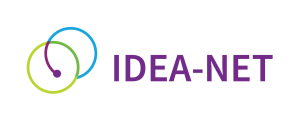University of Hasselt – Hasselt, Belgium (Case 2)
In the last two years, various activities with regard to equal access/inclusion/diversity were carried out namely: • Support and counselling for students and university staff • Lectures, workshops, seminars for students, faculty and non-teaching staff • Training courses for peer educators • Public promotion (e.g. production of media content such as podcasts) • Improving physical accessibility • Improving digital accessibility • Internal Inclusion newsletter • Inclusion Prize for outstanding contributors to inclusion at the university

Inclusion Policy Plan ('Transversale lijn Inclusie') / Inclusion Steering Committee
Hasselt, Belgium
IDEA-net: Expanding the network of Inclusion, Diversity, Equity and Access (IDEA) practitioners in higher education through institutional capacity building
Project ref: 2022-1-NL01-KA220-HED-000089789

This project has been funded with support from the European Commission. This website reflects the views only of the authors, and the Commission cannot be held responsible for any use which may be made of the information contained therein.
